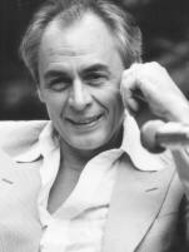|
AMYGDALA - The amygdala (Latin, corpus amygdaloideum) is an almond-shape set of neurons located deep in the brain's medial temporal lobe. Shown to play a key role in the processsing of emotions, the amygdala forms part of the limbic system. In humans and other animals, this subcortical brain structure is linked to both fear responses and pleasure. Its size is positively correlated with aggressive behavior across species. In humans, it is the most sexually-dimorphic brain structure, and shrinks by more than 30% in males upon castration. Conditions such as anxiety, autism, depression, post-traumatic stress disorder, and phobias are suspected of being linked to abnormal functioning of the amygdala, owing to damage, developmental problems, or neurotransmitter imbalance. Joseph E. LeDoux, PhD, is a neuroscientist whose research is primarily focused on the biological underpinnings of emotion and memory, especially brain mechanisms related to fear and anxiety. R.D. Laing - BBC Radio 4 Extra  A key figure in the 60s, influential psychiatrist R.D. Laing tells Professor Anthony Clare about the major influences on his life. Ronald David Laing (7 October 1927 – 23 August 1989), usually cited as R. D. Laing, was a Scottish psychiatrist who wrote extensively on mental illness – in particular, the experience of psychosis. Laing's views on the causes and treatment of serious mental dysfunction, greatly influenced by existential philosophy, ran counter to the psychiatric orthodoxy of the day by taking the expressed feelings of the individual patient or client as valid descriptions of lived experience rather than simply as symptoms of some separate or underlying disorder. Laing was associated with the anti-psychiatry movement, although he rejected the label. Politically, he was regarded as a thinker of the New Left. Ronald D. Laing's work was centered on understanding and treating schizophrenic patients. He could perhaps best be termed an "existential psychiatrist." Indeed, one of his early books was on Jean-Paul Sartre, and he used concepts from Sartre, Hegel and others in endeavoring to conceptualize the life and world of the schizophrenic. Laing himself grew up in a bizarre family setting. His parents forbid him to go out of the house alone or play with other children until middle childhood, they repeatedly conveyed the message to him that he was "evil," and when he went out with them he was kept on a leash with a harness. His childhood environment was such as to cause him severe confusion about which thoughts and feelings were his own, and which were "mapped onto" him by his environment. As an adult, he was himself schizophrenic for periods of time, spending some time as a patient in psychiatric wards. As such, he gained a perspective on schizophrenia which was unusual and perhaps even unique for a psychiatrist. That is, he truly understood what the schizophrenic's world looked like from the inside, as well as from the outside. He also had gained, from his own experience, a sense of the kind of situations in family, school, etc., that could drive a person crazy. Laing worked at Tavistock clinic in London with J. Bowlby and D.W. Winnicott. These rare clips are from the BBC archives, parts of which are featured in Adam Curtis' film Century of the Self. Alexander Lowen (December 23, 1910 – October 28, 2008) was an American physician and psychotherapist. A student of Wilhelm Reich in the 1940s and early 1950s in New York, he developed bioenergetic analysis, a form of mind-body psychotherapy, with his then-colleague, John Pierrakos (February 8, 1921 – February 1, 2001). Lowen was the founder and former executive director of the International Institute for Bioenergetic Analysis in New York City. Born in New York City, Lowen received a bachelor's degree in science and business from City College of New York, an LL.B and a J.S.D (a doctorate in law) from Brooklyn Law School. His interest in the link between the mind and the body developed during this time. He enrolled in a class on character analysis with Wilhelm Reich. After training to be a therapist himself, Lowen moved to Switzerland to attend the University of Geneva and received his Doctorate in Medicine (MD) in 1951. Alexander Lowen met Wilhelm Reich in New York in 1940, and trained with him until 1952. He studied Reich's energy principles and character analysis. He also had personal therapy with Reich from 1942 to 1945 before becoming a Reichian therapist himself. In 1953, he split from Reich and his research on the "orgone". Lowen then developed "Bioenergetic Analysis" as his own creative contribution to help people clarify the complexity of the mind-body split. Lowen lived and practiced for the majority of his life in New Canaan, Connecticut. He suffered a stroke in July 2006. The Alexander Lowen Foundation was founded in April 2007 to continue his legacy. Lowen died on October 28, 2008 at the age of 97. Books authored by Dr Alexander Lowen:
|
AuthorHomayoun Shahri Archives
May 2016
Categories
All
|
Ravonkavi Privacy Policy
©2018 Ravonkavi
©2018 Ravonkavi

 RSS Feed
RSS Feed